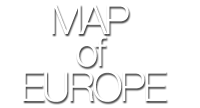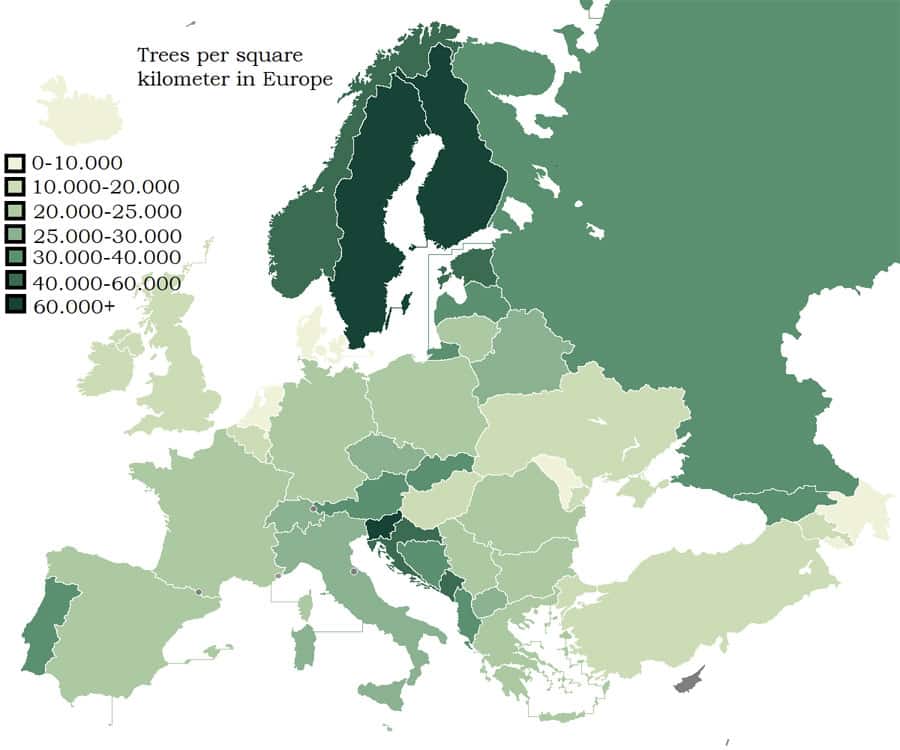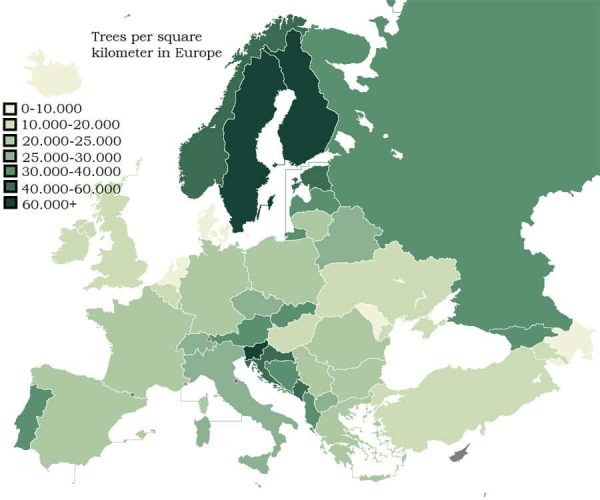This great little map shows just how wooded the countries of Europe are. One of the general trends we can see is that the northern countries of Europe tend to have more trees. Although there are a few exceptions one being Portugal and some of the Baltic countries like Slovenia and Croatia.
The most heavily forested countries in Europe are Finland, Sweden and the aforementioned Slovenia. there are some notable mentions like Montenegro, Russia, Albania and Estonia.
As would be expected, Iceland has a very low concentration of trees. Due to it being a country of mostly volcanic activity, topped with ice and snow. The countries that are a bit of a surprise for having such a low tree population are England, Scotland, Whales and Ireland. When thinking of these countries you generally conjure up images of green countryside, although the green in this case must be hedges, plains and farmland.



